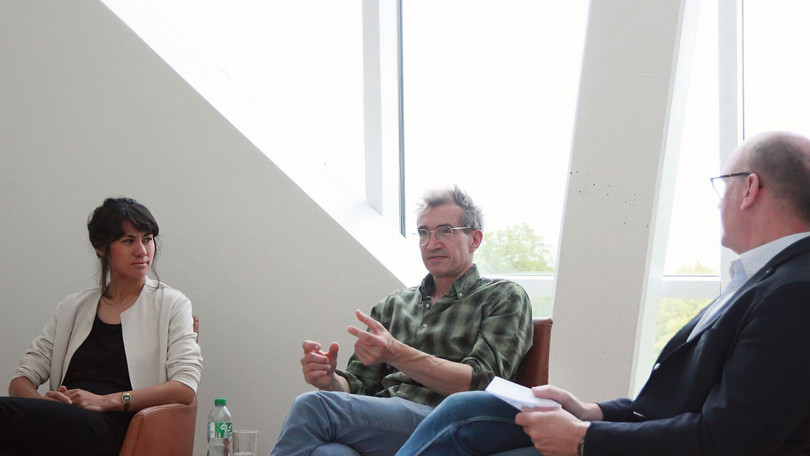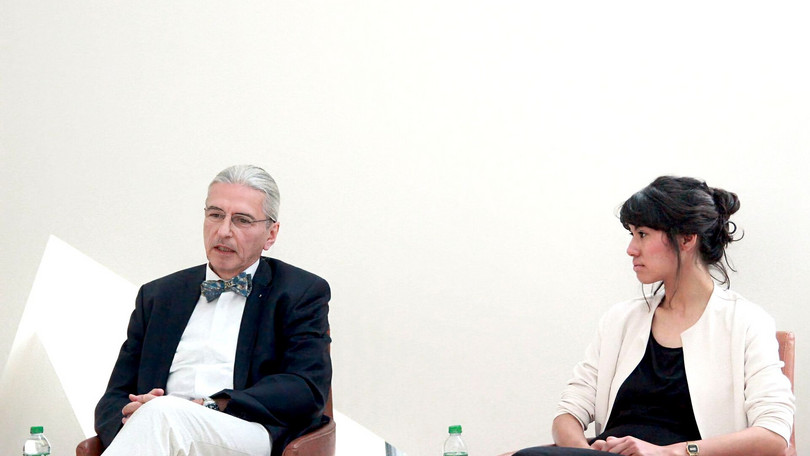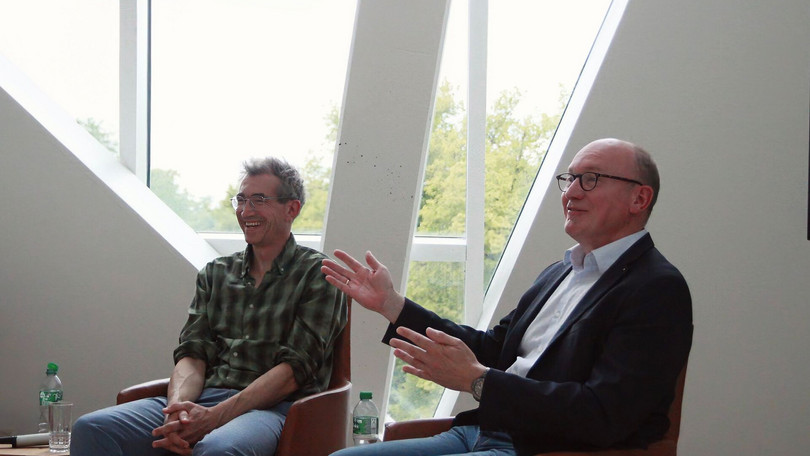Ethics in dialogue: "AI skills must be developed across the board"
About artificial intelligence as a challenge in education
2024-06-20 At the third session of the "Ethics in Conversation" series in the summer semester, Prof Dr Ulf Brefeld (Professor of Business Informatics, in particular Machine Learning) and Prof Dr Dana-Kristin Mah (Junior Professor of Digital Teaching and Learning) as well as the Head of the Regional State Office for Schools and Education in Lüneburg, LRSD Wolfgang Broy, discussed the topic of "Teacher training and / or artificial intelligence? Ethical challenges in education through technology". The series is organised and moderated by Privatdozent Dr Thomas Kück from the Institute of Ethics and Theology.
AI skills need to be developed across the board," Professor Mah stated right at the beginning: "This is not yet the case, but it is the goal. But there are still big differences. n her research and teaching, she has noticed how interest in artificial intelligence is growing. his is helpful, even though the complexity of this new topic also brings with it uncertainty and disorientation. hrough thematisation, discussion and reflection, the great potential, but also the challenges of artificial intelligence for teaching and the teaching profession should be recognised for an informed, responsible and confident use of AI.
Prof Dr Ulf Brefeld's basic research also contributes to this. his work aims to develop methods and tools such as the coordination of players on a football pitch. " he performance of these AI models is incredible," says Brefeld. t comes as no surprise to him that this also raises fears. To counter these effectively, Wolfgang Broy recommends that student teachers "do what is expected of them, namely to be open-minded and incorporate the methods into their pedagogical repertoire".
What does this mean for educational equity? What material resources do pupils find at their schools? What prerequisites do they bring with them from home? emphasised two aspects in particular. Firstly, it was about licences, about making technologies available to everyone - the "digital divide" is not just a global problem, it can also be found at our universities and schools. On the other hand, AI skills play an important role, both for teachers and students, in order to be able to use the technologies sensibly and effectively for learning. feld added that educational work with AI must be preceded by the anchoring of basic IT skills in society. According to Brefeld, there is an unfairly wide spectrum between the two extremes and this needs to be addressed didactically at school.
Thomas Kück moved on from educational equity to examination issues: "Li Isn't there also a danger here if ChatGPT writes the homework in future?" There has always been help with homework at home, replied Wolfgang Broy. -Kristin Mah went in a different direction here and asked whether the uncertainty mentioned did not also offer an opportunity to reflect on the current exam culture. Thinking in terms of more competence-oriented forms of examination, more personalisation, more collaborative learning and process-oriented project work offer potential to make learning and teaching more effective in terms of learning. However, Wolfgang Broy from the school supervisory authority emphasised the need for individual and qualified reports to continue to exist. This is also expected by pupils. he importance of the (inter)national recognition of qualifications.
I'm pleased that we can contribute to breaking down barriers and increasing critical interest in artificial intelligence in teacher training programmes with events like the panel discussion," says Thomas Kück, "it's a pedagogical and IT challenge, but it's also an ethical one. Are we using AI correctly at school?"



